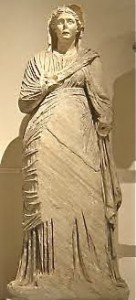Who We Are
Mission Statement
We are a Catholic Community under the guidance of Holy Wisdom Sophia, rooted in the consciousness of Vatican II, and continuing the renewal of the Church, the Body of Christ.
We celebrate Mass with an open Eucharistic table, served by women priests.
We are committed to inclusivity at every level — liturgy, language, ministry and theology — as we seek to honor the infinite expressions of the Divine.
We welcome you wherever you are on your spiritual path. We offer a refuge of healing and spiritual nourishment for all, including those who have been alienated or hurt by church.
In our unfolding journey, we strive to embody the social teaching of Jesus as we listen together for the voice and direction of Spirit in our outreach to the world.
Our History
Sophia Christi is one community residing in two locations: Portland and Eugene OR.
Many people who came to Toni’s ordination in 2007 wanted to continue celebrating Eucharist with her, so in August 2007, the first Mass was celebrated at University Park United Methodist Church in North Portland. This turned out to be the first monthly Liturgy of the Sophia Christi Catholic Community.
Since Toni had also lived in Eugene for many years and had served in outreach ministries in two separate parishes, there were a number of friends and colleagues from Eugene who supported her calling to priesthood and were present for her ordination. Several of them asked her to come celebrate Mass there in the weeks and months following her ordination in July. In November she responded to their invitation and made the journey South. This proved to be the beginning of a monthly Liturgy in Eugene as well.
By the beginning of 2008, it was clear that both Portland and Eugene communities were developing roots, beginning to grow and needed a name. Everyone on the email list was invited to submit ideas for naming these two groups and very quickly one name rose to the top. When the email flurry came to a close, both Eugene and Portland had decided to share the name Sophia Christi and to become one community residing in two locations. Thus we have one Leadership team comprised of members from both groups, our Mission Statement was written at a community-wide retreat, and various members travel between towns on occasion to attend Liturgies and community meetings in their sister-city. Our identity as Sophia Christi is enriched by our extended Oregon locations, and we believe Sophia is doing something new and exciting through our shared identity and valley-wide ministry.
Our Name
The figure of Sophia—Wisdom—appears in the Book of Proverbs, the Book of Wisdom, and in Sirach. In the Wisdom Literature of the Hebrew Bible, She is the personification of various attributes of God. By the first century BCE, She had become such an influential figure among Greek-speaking Jews that She functioned almost as a Goddess in the culture. Though She is a powerful expression of the great feminine archetypes, Her development was restricted by the monotheistic beliefs of Judaism. During the Hellenistic period (roughly 323 to 146 BCE) there seemed to be a growing interest in Sophia, and even a glorification of Her, which may have led to the eventual substitution of the word “Logos” for “Sophia” in New Testament writings.
We call ourselves “Sophia Christi” which literally means “the Wisdom of Christ” in order to claim the Divine Feminine tradition of our Christ-centered heritage. Early Church “fathers” actually wondered whether Jesus might be the incarnation of Sophia! This is not a far-fetched question scripturally, given the many attributions of Sophia’s identity onto him. We celebrate the interplay of gender within our conceptual framework of the Divine in order to remember that first, God has no gender and second, Mystery is at the heart of Whoever and Whatever God is. Sophia and Jesus are the feminine and masculine aspects of a Divine Mystery attempting to reveal itself in a specific place and time in non-physical (Sophia) and physical (Jesus) form. We elevate the feminine because it has been forcefully repressed throughout history, but we worship at the altar of Mystery while finding our focus for worship in the person of Jesus, who is the Christ.


